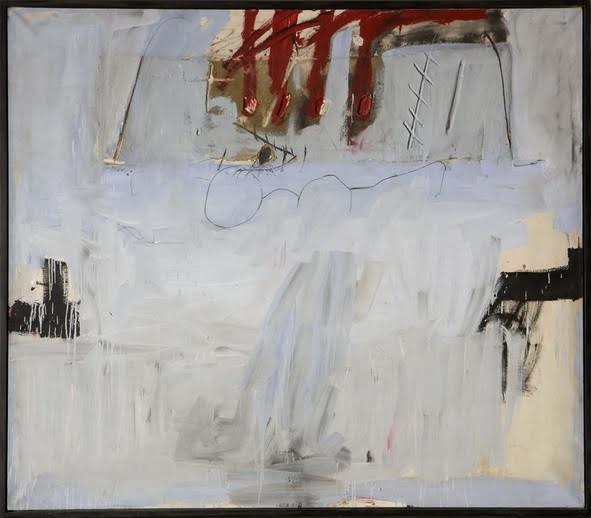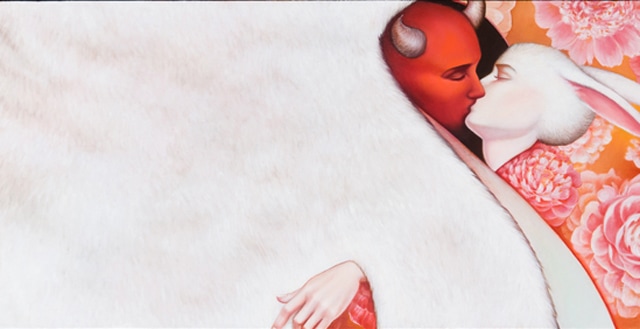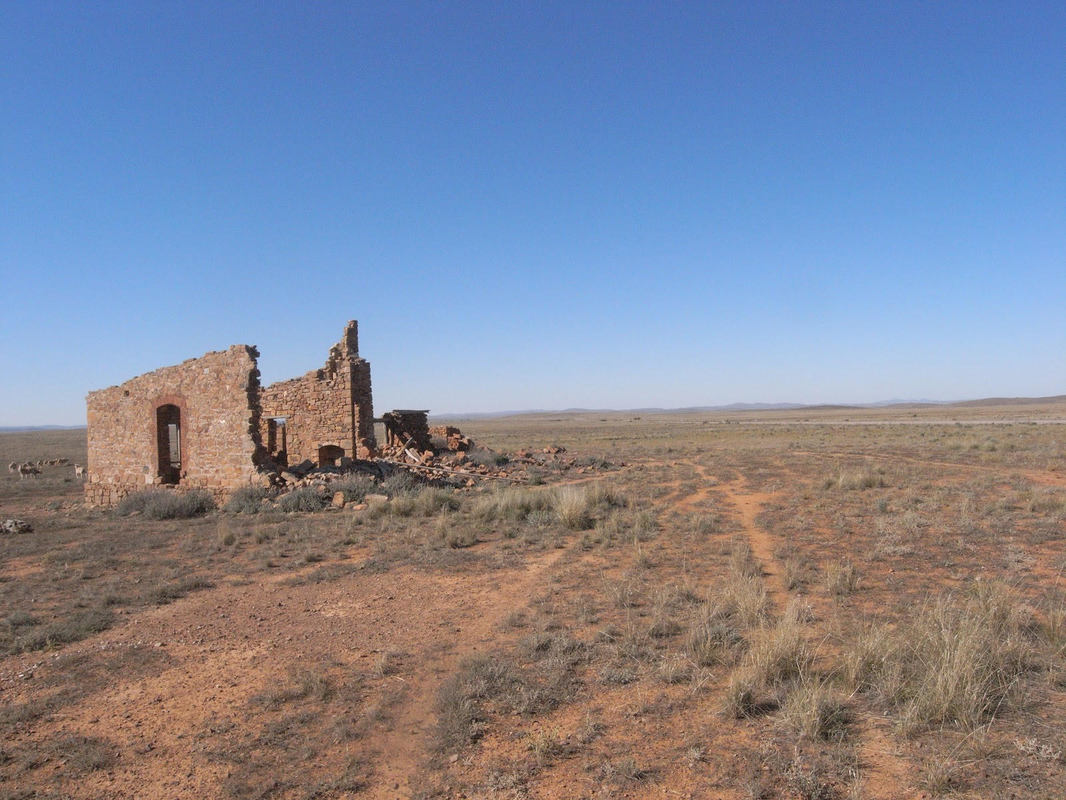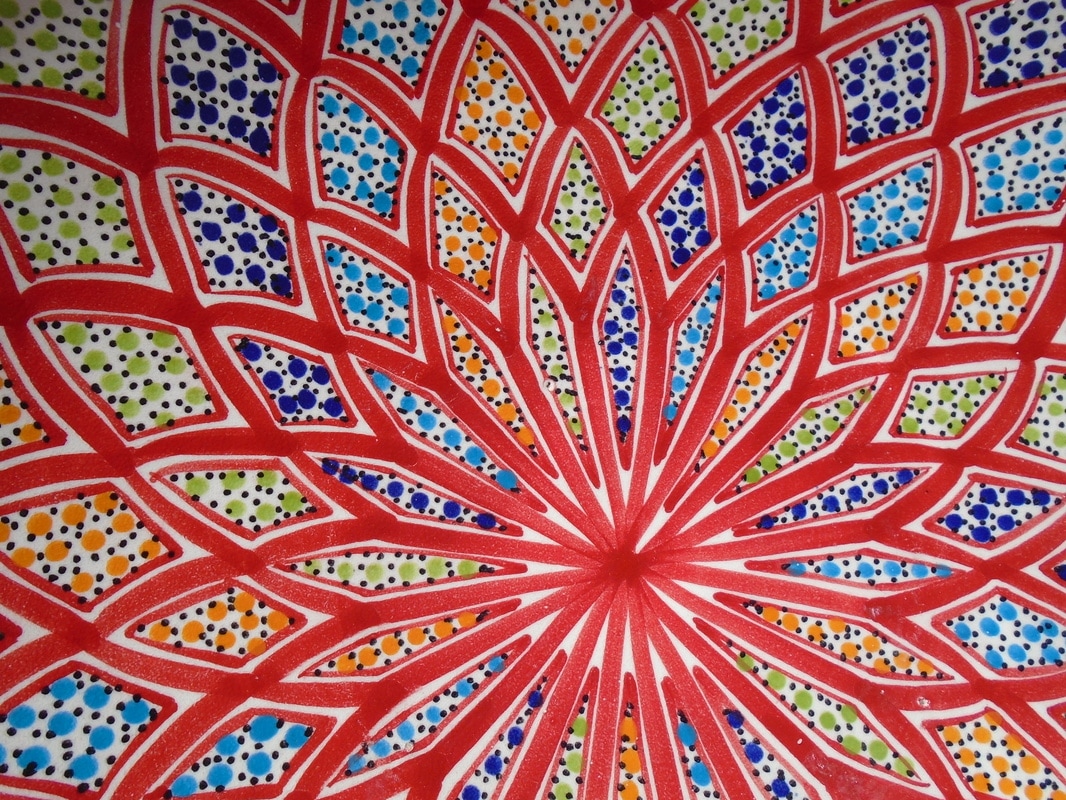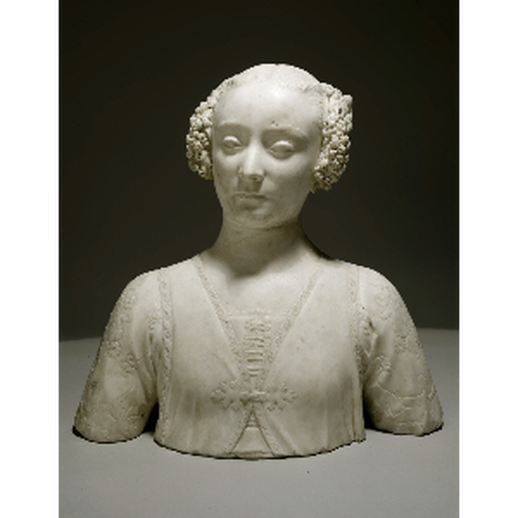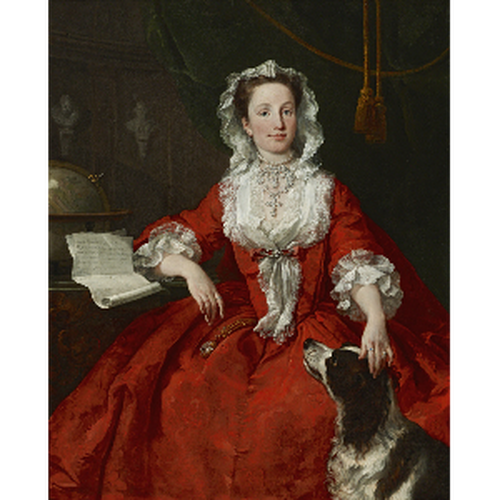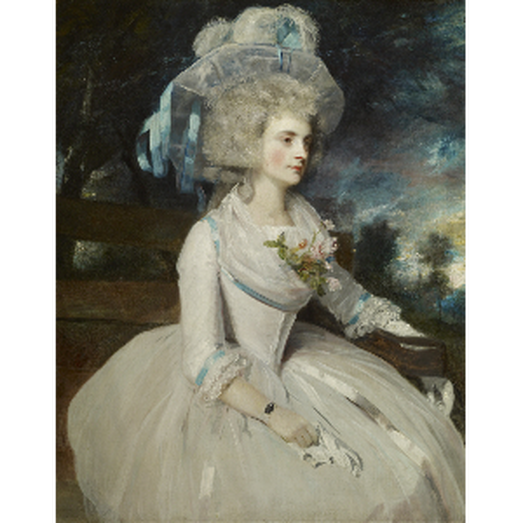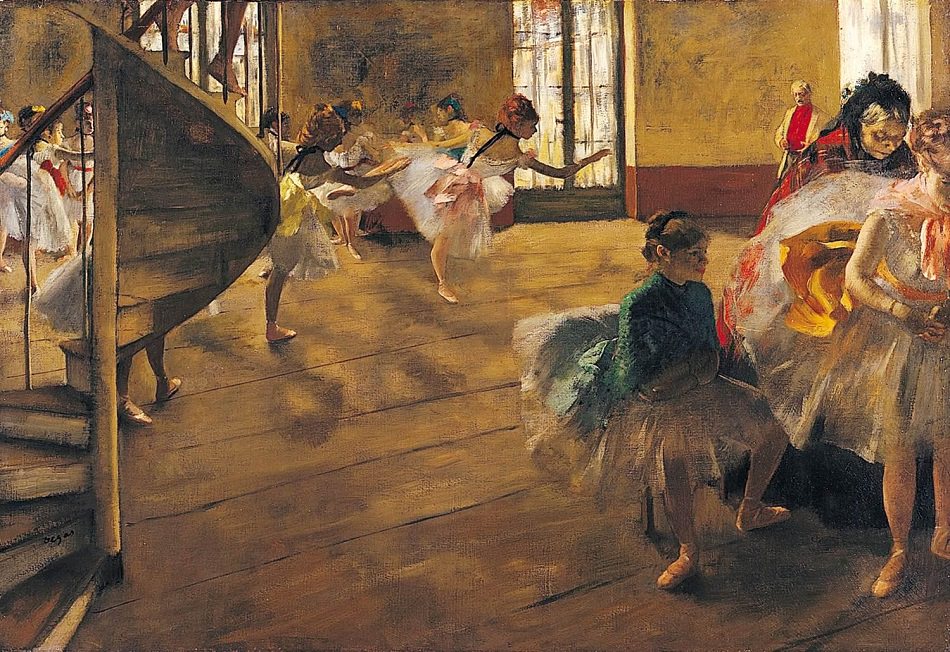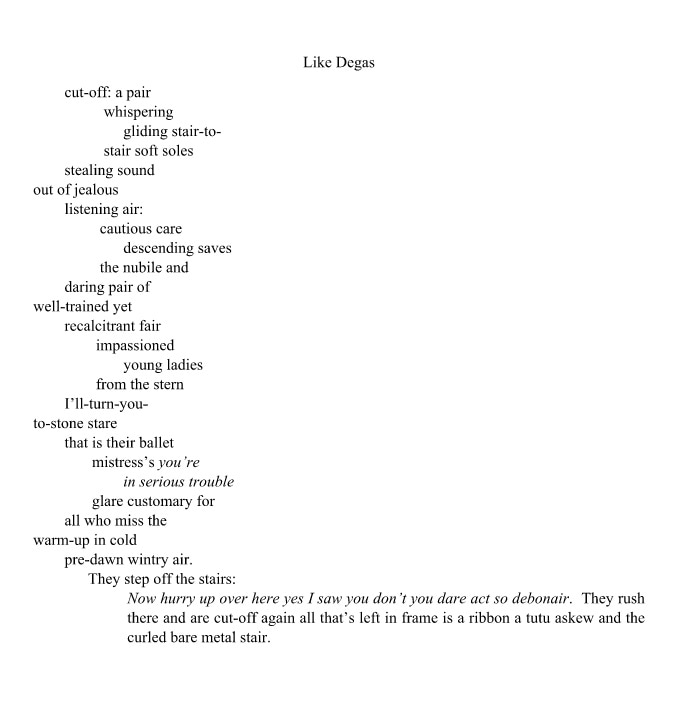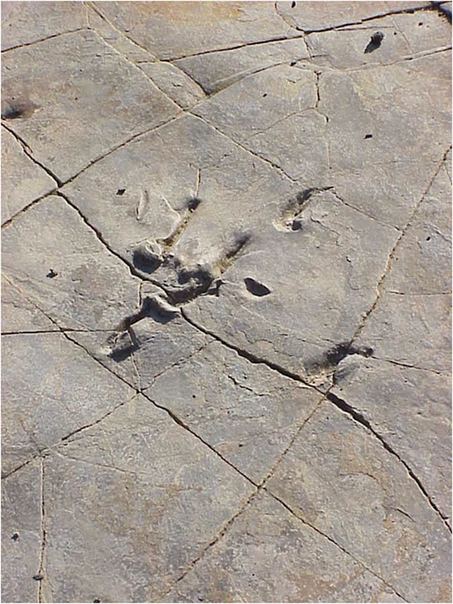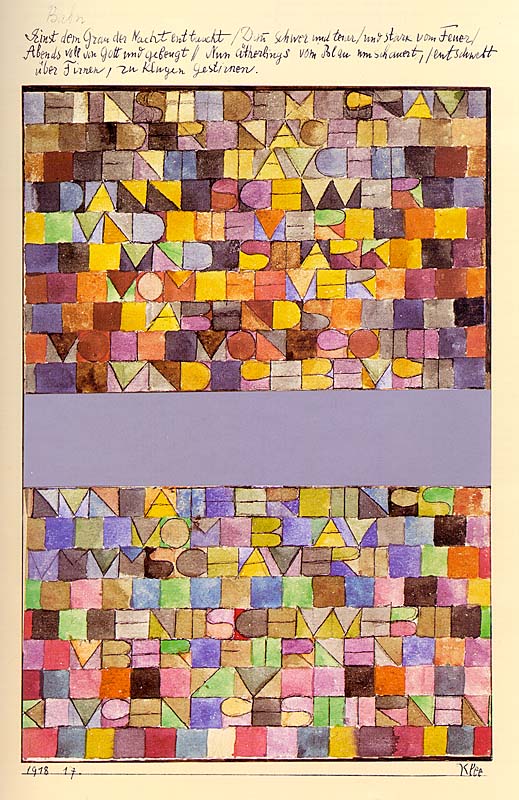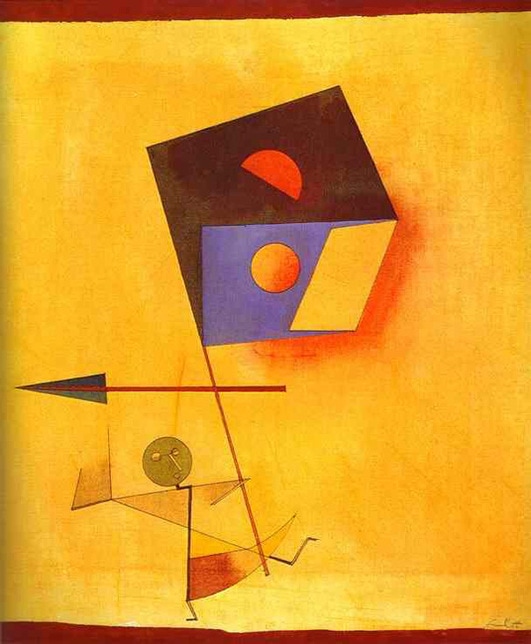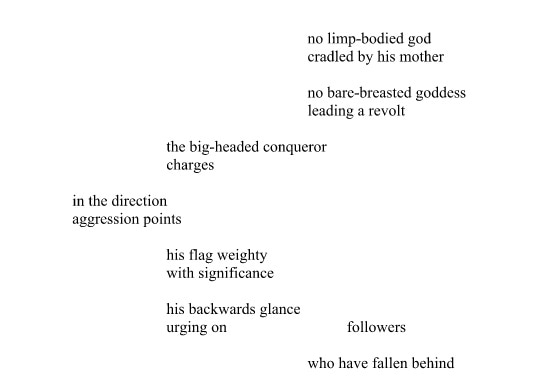|
One Viewer’s Response to Antoni Tapies’ Blue with Four Red Bars A blue man walks into four red bars (sequentially, of course; not all at once). “I’m blue,” he says. “Melancholy, morose. What should I do? And why are all the bars in this town red?” “Drink this,” each barkeep would say. “The bars have been red for a decade. Where are you from, anyway?” And so the night goes: a blue man stumbling from red bar to red bar till rosy-fingered dawn strikes fire from the wine-dark sea. Penelope! The wanderer sets his course for home. Bill Waters This poem was written as part of the 20 Poem Challenge. Known primarily for his Japanese-style micropoetry, Bill Waters also writes ekphrastic poetry, found verse, book spine poetry, and all manner of short prose. He lives in Pennington, New Jersey, U.S.A., with his wonderful wife and their two amazing cats.
0 Comments
Personal Assistance
You haven't felt the same about peonies since hearing that the ants crawling over their buds chew them open and cause them to bloom. Maybe every beauty needs an incubus, a demon servant behind the scenes. The maid-service slogan reads “We work while you're at work.” All those mites and fungi that patrol your paper-pale skin, prickle your delicate ears: invisible servitors—of something. Whose hands stroke your soft, milk-white pelage? Who draws you under the cloud-cover of dreams? Who will open you now with his insectile jaws? Whose hyperbolic horns herald adventures to come? The peonies linger as fragrant memories in the gold chaos of late summer's burning sky, under its red sun. F.J. Bergmann F.J. Bergmann edits poetry for Star*Line, the journal of the Science Fiction Poetry Association (sfpoetry.com) and Mobius: the Journal of Social Change (mobiusmagazine.com), and imagines tragedies on or near exoplanets. A Catalogue of the Further Suns, winner of the Gold Line Press chapbook contest, will appear in 2017. Desert Ruin
Trees huddle in dry, rocky creek beds. Beyond the horizon's heat-haze the distant mirage shimmers and the Flinders Ranges rise suddenly in knuckled lumps. In the stark beauty of this barren world a single ruin crumbles, a doorway and a few walls all that remain of a dream that sparkled, sweated, flickered and died. Then, beneath the dome of cloudless blue or star-littered black, the flat land shrugged off the puny human scratches and returned to its harsh eternity. Neil Creighton Neil Creighton is an Australian poet with a passion for social justice and a love of the natural world. Recent publications include "Poetry Quarterly", "Silver Birch Press", "Praxis Online", "South Florida Poetry Journal" and "Verse-Virtual", where he is a contributing editor. His poetry blog iswindofflowers.blogspot.com.au Dear Faithful Reader and Patient Contributor,
Please forgive the recent slower pace at the Ekphrastic Review. I am in Tunisia at an arts symposium! I will return to my desk after the first week of May and catch up then. Thank you for your understanding- we have great feats of the literary imagination ahead, so don't go away! love, Lorette At The Frick Andrea del Verrocchio, the goldsmith, fecit, brought he up curls intact from the marble-- the ties of her corpetto visible above her gilet, the clip that adorns her a gilded leaf. This man knew gilt, embroidered it in stone on her upper arm. Hogarth pictures his patron, Miss Edwards and Miss Edwards’ spaniel and Miss Edwards’ spaniel eyes, and Miss Edwards’ dress, a scarlet pennant, drawing our eyes to her torso, her dog gazing up at her, pre-or-post snarl. Joshua Reynolds, portraitist, produced In Lady Skipworth, ennui. She engaged more with the pink roses fairly leaping off her bodice, with the lead powder, dead-white on her forehead. She pouted at him from under her blue-ribboned tulle and satin chapeau. The women in pastels, in circus colours, promote the ideal female form in body, in objects-- the bend of arm or hat brim, the curve of breast or scroll. The ladies, aristocrat and peasant, with their curls and dogs and ribbons demonstrate how to die for beauty, be fondled by art. Wendy Taylor Carlisle Wendy Taylor Carlisle lives in the Arkansas Ozarks. She is the author of two books, Reading Berryman to the Dog and Discount Fireworks and five chapbooks, most recently, They Went Down to the Beach to Play from locofo chaps and Chap Book from Platypus Press, UK. For more information, check her website at www.wendytaylorcarlisle.com. 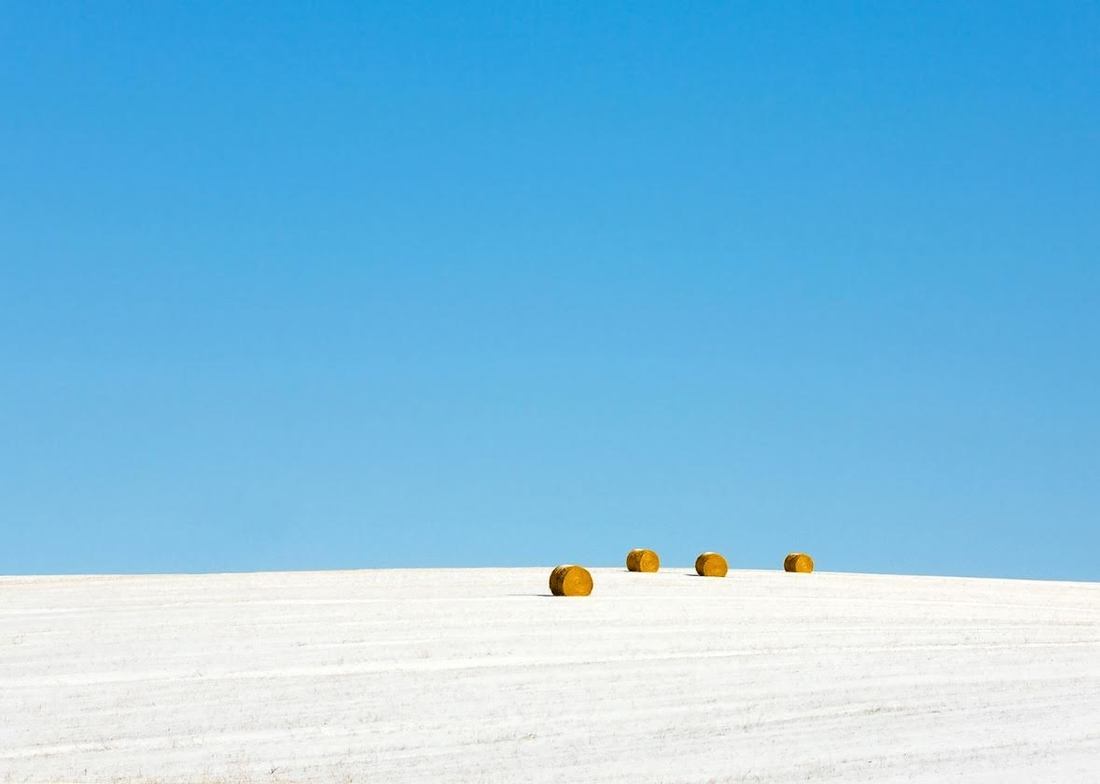 Photo by Todd Klassy. To see more of Todd's rural photography, visit www.toddklassy.com. One Viewer’s Response to Todd Klassy’s 4 Round Bales
In a cloudless landscape everything but the sky looks small. Man-high bales become rounds of cut timber, and a snowy, furrowed field becomes a white-sand beach beside a sea so smooth and blue that it merges with the sky -- no waves or boats, no flashes of sun, no horizon to separate water from air. Bill Waters This poem was written as part of the 20 Poem Challenge. Known primarily for his Japanese-style micropoetry, Bill Waters also writes ekphrastic poetry, found verse, book spine poetry, and all manner of short prose. He lives in Pennington, New Jersey, U.S.A., with his wonderful wife and their two amazing cats. Brad Schmidt
Brad Schmidt has a B.A. in English with a specialization in Creative Writing from Southern Methodist University. He is slowly writing a novel and building a portfolio of poems and eventually hopes to pursue a MFA in Poetry and a Ph.D in English Literature. He lives in Houston and loves to paint and to look at paintings. Horizons "Back toward the time when the world, without footprints, broke open." - Ginger Murchison, from her poem, "On Stone Mountain" A backhoe paws its single front leg onto gray shale, shatters, pulls, breaks, delaminates, lays waste the traces of Edaphosaurus dog-paddling hot, briny estuaries under equatorial Permian sun, rips the pages of ancient stone texts, devastates the cuneiform signatures of reptilian claws, the clay tablets of millennia of evolution's accounts: the world, with footprints, broken open. Roy Beckemeyer Roy Beckemeyer lives in Wichita, Kansas His poems have appeared in a variety of print and on-line literary journals including Beecher's Magazine, Chiron Review, Coal City Review, Dappled Things, Flint Hills Review, I-70 Review, Kansas City Voices, The Light Ekphrastic, The Midwest Quarterly, The North Dakota Quarterly, The Syzygy Poetry Review, and Zingara. His book of poetry, Music I Once Could Dance To (Coal City Review and Press, Lawrence, KS, 2014) was selected as a 2015 Kansas Notable Book. He won the Beecher's Magazine Poetry Contest in 2014, and the Kansas Voices Poetry Award in 2016. Conqueror Jack Kristiansen
Jack Kristiansen exists in the composition books and computer files of William Aarnes. Kristiansen’s poems have appeared in such places as FIELD, Tipton Poetry Journal, The Literary Review, Stone’s Throw Magazine, and Sunsets and Silencers, Main Street Rag. |
The Ekphrastic Review
COOKIES/PRIVACY
This site uses cookies to deliver your best navigation experience this time and next. Continuing here means you consent to cookies. Thank you. Join us on Facebook:
July 2024
|
